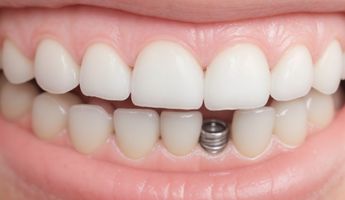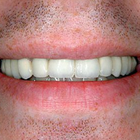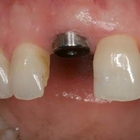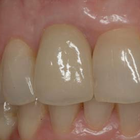Dental Implant in Spain
Search and Compare the Best Clinics and Doctors at the Lowest Prices for Dental Implant in Spain

Find the best clinics for Dental Implant in Spain
With Medijump you can browse 42 facilities offering Dental Implant procedures in Spain. The cheapest price available is $417 in Barcelona. And for the cheapest price globally, prices start from $1 in Vietnam.
Dental Implant in Barcelona
Price: $ 417
Dental Implant in Valencia
Price: $ 639
Vietnam offers the best prices Worldwide
Price: $ 1
From 8 verified reviews
María José Peñuelas, 08 July 2019
We went for an emergency and they treated us wonderfully. The very professional doctors. 100% recommended
From 73 verified reviews
Laura Moya Torres, 24 August 2020
Very professional and excellent service at a fair price.
From 119 verified reviews
Sonia luque maroto, 22 September 2020
Very good and professional treatment
From 12 verified reviews
Carole Corwood, 08 December 2019
For many years I have been afraid To go to the dentist until I walked through there doors the receptionists are so nice and reassuring they where brilliant and put me at ease.. Howard the dentist was absolutely fantastic he was very calming and explained every persidure very professional and a fantastic dentist I would recommend this practice to anyone
From 27 verified reviews
Dulce Monsoriu, 14 October 2019
Absolute seriousness and fantastic professionals. I liked the treatment, especially the lpg and very friendly auxiliaries. I will repeat without a doubt
From 46 verified reviews
Claudia CS, 22 September 2020
Destaco la profesionalidad del equipo en general y sobre todo del jefe de urgencias.
From 130 verified reviews
Maria Luaces, 17 September 2020
I am on vacation in Vigo. I have found the attention, the treatment, the facilities, the efficiency, the professionals out of 10. I recommend this hospital without hesitation.
From 20 verified reviews
Natacha Darmon, 22 June 2020
During a trip to Barcelona, an emergency forced me to consult, very welcoming staff, the dentist is very professional, attentive and pleasant.I definitely recommend
From 135 verified reviews
Fran Eno, 17 September 2020
Friendly and professional
From 76 verified reviews
N RiveroM, 22 September 2020
Clínica con una muy buena atención, desde que entras hasta que sales. Muy buenos profesionales.
From 48 verified reviews
Daniel Lloyd, 22 September 2020
Excelente experiencia en todos lo ámbitos, en mi familia varias operaciones, muy exitosas y mucha profesionalidad
From 116 verified reviews
Marga, 19 September 2020
Today I am going to contribute my grain of sand to this great hospital and its great professionals. My eternal gratitude to Dr. Sebastián Garfias and Dr. Pedro Llinas who have operated on me for my herniated disc by arthroscopy, they have taken away the pain and I am phenomenal, great work from the neurosurgery team, magnificent professionals. They are close, friendly, listen to you, explain you, advise you and make everything very easy for you. The same I have to say about the anesthesia team, great work and follow-up, you are very good professionals with a lot of empathy. I felt very accompanied, very calm, despite the pain and nervousness. Everyone with the mask, but with a smile in their eyes. I don't want to forget, not even the entire nursing team on the 2nd floor. Thank you very much for the treatment received and for the love that you put in doing things, despite being admitted, it has been a pleasure to be there, you are a wonderful team of professionals. I also want to thank the patient care girls, who have come to be interested in me on a daily basis, in case I needed anything. Many years ago I had a bad experience with this hospital and had not returned. Today I recommend it 100%. And I will continue in the hands of its professionals.
Clinica Dental - Dr. Joan Ramis Matas, located in Avinguda d Alexandre Rossello, Palma de Mallorca, Spain offers patients Dental Implant procedures among its total of 55 available procedures, across 2 different specialties. The cost of a Dental Implant procedure ranges from ฿34,600 to ฿57,600, whilst the national average price is approximately ฿36,554. There are many specialists available at the Dental, with 8 in total, and they are accredited by ISO 9001:2008
Clinica Dental Crooke & Laguna - Marbella, located in Calle del Mediterraneo, Marbella, Spain offers patients Dental Implant procedures among its total of 56 available procedures, across 3 different specialties. Currently, there's no pricing information for Dental Implant procedures at Clinica Dental Crooke & Laguna - Marbella, as all prices are available on request only, whilst the national average price is approximately $1,016. All procedures and treatments are undertaken by just a small team of specialists, with 2 in total at the Dental, and they are not accredited by any recognized accreditations institutes
Implantologia Estetica, located in Carrer del Dr Roux, Barcelona, Spain offers patients Dental Implant procedures among its total of 41 available procedures, across 2 different specialties. The cost of a Dental Implant procedure starts from ฿31,100, whilst the national average price is approximately ฿36,554. All procedures and treatments are undertaken by the lead specialist at the Clinic, and they are not accredited by any recognized accreditations institutes
Policlinica Vitaltea, located in Calle del Gral Oraa, Madrid, Spain offers patients Dental Implant procedures among its total of 37 available procedures, across 3 different specialties. Currently, there's no pricing information for Dental Implant procedures at Policlinica Vitaltea, as all prices are available on request only, whilst the national average price is approximately $1,016. There is currently a lack of information available on the specialists practicing at the Hospital, and they have multiple recognized accreditations, including: Consejería De Sanidad De La Comunidad ValencianaCOEA - Colegio Oficial de Odontólogos y Estomatólogos de Alicante
DENTAL BANUS CLINIC, located in Calle del Mediterraneo, Marbella, Spain offers patients Dental Implant procedures among its total of 42 available procedures, across 5 different specialties. Currently, there's no pricing information for Dental Implant procedures at DENTAL BANUS CLINIC, as all prices are available on request only, whilst the national average price is approximately $1,016. All procedures and treatments are undertaken by the lead specialist at the Dental, and they have multiple recognized accreditations, including: ISO Certification - International Organization for StandardizationITI - International Team for ImplantologyCOEMA - Colegio de Odontólogos y Estomatólogos de Málaga
Dental Centre Mallorca, located in Carrer de son Espanyolet, Mallorca, Spain offers patients Dental Implant procedures among its total of 36 available procedures, across 2 different specialties. Currently, there's no pricing information for Dental Implant procedures at Dental Centre Mallorca, as all prices are available on request only, whilst the national average price is approximately $1,016. All procedures and treatments are undertaken by the lead specialist at the Dental, and they have multiple recognized accreditations, including: GDC - General Dental CouncilBDA - British Dental AssociationGDC - General Dental CouncilBOS - British Orthodontic SocietySocialstyrelsenInvisalign ProviderBDA - British Dental AssociationKISS - Kvalitet I Sønderjyllands SundhedsvæsenBOS - British Orthodontic Society
Dr. Dodds Dental Clinic, located in Calle Especeria, Malaga, Spain offers patients Dental Implant procedures among its total of 37 available procedures, across 2 different specialties. Currently, there's no pricing information for Dental Implant procedures at Dr. Dodds Dental Clinic, as all prices are available on request only, whilst the national average price is approximately $1,016. All procedures and treatments are undertaken by the lead specialist at the Dental, and they are not accredited by any recognized accreditations institutes
Clínica Dr. Campos, located in Calle del Mediterraneo, Marbella, Spain offers patients Dental Implant procedures among its total of 72 available procedures, across 7 different specialties. Currently, there's no pricing information for Dental Implant procedures at Clínica Dr. Campos, as all prices are available on request only, whilst the national average price is approximately $1,016. All procedures and treatments are undertaken by just a small team of specialists, with 2 in total at the Hospital, and they are not accredited by any recognized accreditations institutes
- Home
- Spain
Compare Before & After Photos of _procedure_photos.phpDental Implant


Front view


Front view


Front view


Front view


Front view
WHY US?
At Medijump, we're making medical easy. You can search, compare, discuss, and book your medical all in one place. We open the door to the best medical providers worldwide, saving you time and energy along the way, and it's all for FREE, no hidden fees, and no price markups guaranteed. So what are you waiting for?

Free

Best Price

Widest Selection

Risk-Free
What you need to know about Dental Implant in Spain

A dental implant is a medical device that provide support to artificial teeth. It's surgically placed into the jaw to act as a replacement for the root of a missing or damaged tooth, which in turn serves to hold a replacement tooth or bridge. It functions and looks much like a real tooth, restoring your ability to chew and improves your overall appearance. Dental implant surgery is considered as a better alternative to dentures or bridgework that does not fit well. It also offers a great option for people when they do not have enough natural teeth roots left to build denture or bridgework replacements.
Since dental implants eventually fuse with your jawbone over the span of several months, it won’t make noise, slip, or cause bone damage the way dentures or bridgework might. Dental implants also enable natural speech, look and feel like your own teeth, make eating easier, and improves your appearance. However, the surgery may involve several stages, and, in some cases, it may require two separate visits to the clinic to complete. Ensure to look for a specialist in a reputable clinic for the best results.
What is the cost of Dental Implant in Spain?
Price differences abound in Spain for Dental Implant based on the clinic, the proficiency of the surgeon, and the individual requirements of the patients. It's essential to realize that dental insurance usually doesn't cover the entire bill for this treatment, though it might cover a part. Several dental clinics provide finance schemes or payment alternatives to assist in easing the financial burden. For more precise cost estimates, reach out to your dental service provider or a nearby clinic.
What does a Dental Implant Procedure Involve?
Dental implant surgery generally requires several stages. Each stage may be performed under general or local anesthetic. The first stage is removing the damaged tooth. Then, if your jawbone is too soft or not thick enough, your dentist may perform bone grafting to create a more solid base for the implant. The bone graft may be natural (taken from another part of your body) or synthetic (a bone-substitute material). If you only need minor bone grafting, the implant surgery can be performed on the same day. However, if you need a significant amount of bone graft, the implant surgery may have to be postponed until the transplanted bone grows enough new bone to support the dental implant.
The next stage after the damaged tooth removal and bone graft (if you need one) is placing the dental implant. To do this, your dentist makes an incision to expose the bone and puts the metal implant post deep into the bone. At this stage, you will still have a gap where your tooth is missing. Your dentist will place a temporary denture for appearance. Once the metal implant post is placed, osseointegration begins. This is a process where the jawbone grows into the surface of the implant and can take several months to complete. After osseointegration is complete, your dentist will place the abutment, which is a small connector post that will hold your new tooth. The final stage, after the abutment is placed, is placing the crown, which is the tooth-looking part. You can choose between a removable crown and a fixed crown.
How Long Should I Stay in Spain for a Dental Implant Procedure?
The length of your stay in Spain for a Dental Implant depends on numerous considerations like the intricacies of the procedure, the quantity of implants required, and your personal recovery process. Each stage of dental implant surgery is done in separate appointments. After each appointment, you should be able to leave the hospital or clinic right away. However, you should stay in Spain for at least 2 weeks for completion of the work, the initial recovery time, and follow-up checkups.
What's the Recovery Time for Dental Implant Procedures?
The recuperation duration following a Dental Implant or dental implant operation can widely vary and is shaped by multiple aspects. Initial healing of the tissue might require only a handful of days, but complete osseointegration (the fusion of the implant with the jawbone) generally spans several months. This window could be extended for patients requiring auxiliary procedures such as bone grafts, or those with prevailing health issues that may impede the healing process.
Post-procedure, it's not unusual to experience a degree of discomfort, which could manifest as minor pain, swelling of your gums and face, skin and gum bruising, and slight bleeding. Such symptoms are a standard phase of the recovery process and should alleviate within a fortnight. In this interim, it's advisable to stick to a soft diet to not overload the implant site with undue pressure. Any strenuous physical exertion should be put off to circumvent potential complications.
Maintaining excellent oral hygiene is paramount to facilitate healing and stave off infection. Regular brushing and flossing, being particularly gentle around the surgical area, coupled with rinsing your oral cavity with warm saline water, can contribute to keeping the region hygienic.
What sort of Aftercare is Required for Dental Implant Procedures?
After each stage of surgery, you may have to eat soft foods. Since you may experience swelling, bruising, pain, and minor bleeding, your dentist will prescribe pain medications or antibiotics to help ease your discomfort. During your recovery period, you need to avoid smoking as it can contribute to implant failure and complications.
No special care is required for dental implants. Nonetheless, you need to practice good oral hygiene in order to maintain the implant and your remaining natural teeth. Make sure to brush your teeth twice a day, floss daily, and rinse your mouth with an antiseptic mouthwash. You also need to see your dentist regularly and avoid damaging habits, such as chewing hard items.
What's the Success Rate of Dental Implant Procedures?
The efficacy of Dental Implant, alternatively referred to as dental implants, in Spain, is typically impressive, boasting effectiveness percentages as high as 98% in some studies. This positions dental implants as one of the most reliable procedures within dental care's realm. Nevertheless, it's worth mentioning that the success rates might fluctuate, influenced by several factors.
The patient's overall health is a key determinant of the thriving outcome of a dental implant procedure. Individuals exhibiting optimal health usually witness higher success rates. Pre-existing health issues like diabetes, osteoporosis, and periodontal ailments can theoretically impact the efficacy of the implant.
Additional contributing factors to the success rate encompass the quality and abundance of the individual's bone structure. Patients boasting plentiful, healthy bone are ordinarily the perfect candidates for dental implants. However, those who have experienced bone loss might need to undergo a bone grafting procedure before the implant procedure. This step can provide a robust base for the implant and enhance the chances of a successful result.
Are there Alternatives to Dental Implant Procedures?
If you are not a candidate for dental implant surgery, or you simply do not want to undergo the procedure, you can opt for the alternatives. The alternatives include:
- Mini dental implants, which is a small type of dental implants. The structure is similar to regular dental implants, but are somewhat smaller in size. Unlike regular dental implants, dentists can often place mini implants only in one visit using local anesthesia. You may also be able to use your new teeth on the same day.
- A same-day implant is essentially similar to traditional dental implants. However, your dentist performs the whole process in just one day, skipping the process of wound healing and osseointegration.
- Implant-supported dentures or All-on-4 is an alternative if you need to fix a complete upper or lower set of teeth. During this procedure, four to six implants are placed into your jawbone as a base to attach and stabilize your denture.
What Should You Expect Before and After the Dental Implant Procedure?
Grasping what lies ahead before and post the Dental Implant can lessen potential worries and guarantee you are fully equipped for the upcoming journey. Prior to the procedure, your dental practitioner will conduct an all-inclusive dental assessment. This check-up may encompass dental X-rays and sophisticated 3D imaging to examine the status of your oral cavity.
The dental professional will also explore your medical history. If you're suffering from specific heart disorders or orthopedic implants, your dental practitioner might suggest antibiotics to avert infection. A personalized treatment blueprint, customized to your circumstances, will be constructed. This strategy takes into account factors like the amount of teeth you need substituted and the state of your jawbone. The procedure is typically carried out under local anesthesia to mitigate any discomfort.
Subsequent to the operation, experiencing slight unease is usual. You might witness inflammation of your face and gums, discoloration of your skin and gums, soreness at the insertion area, and insignificant bleeding. Your dental specialist will recommend medications to soothe these indicators. In case inflation, unease, or any other complications intensify in the days post-operation, it's crucial to reach out to your oral surgeon. Post-operation will require you to consume mushy foods as the operated site recovers. Moreover, you'll be guided to abstain from smoking, as it can hinder recovery and influence the triumph of the dental implant.
Following the positioning of the implant, the healing process, and fusion with the bone (osseointegration) transpire over an extended period. During this interval, maintaining robust oral cleanliness is vital. This involves frequent brushing, the use of dental floss, and cleansing with an antibacterial mouthwash. Periodic dental examinations are obligatory to track progress and confirm the well-being and effectiveness of the implant.
What are Potential Risks of Dental Implant?
Despite Dental Implant boasting remarkable effectiveness, it is, as any surgical operation, not without risks and potential difficulties. The chances of encountering these issues are often minute and irregularities are infrequent, yet it remains critical for patients to comprehend these possibilities before undertaking the procedure.
Complications and side effects may include:
- Implant failure
- Nerve injury
- Infection
- Sinus problems
- Damage to surrounding structures, such as other teeth or blood vessels
How long does a Dental Implant last?
The durability of a Dental Implant is heavily reliant on the individual's oral cleanliness and general wellbeing. Nonetheless, with appropriate upkeep and care, dental implants have the potential to stand the test of time. The titanium pillar inserted into the jawbone during surgery is crafted to be everlasting, while the dental cap fastened to the anchor may necessitate substitution every decade or decade and a half due to normal usage. Yet, with outstanding dental management and habitual screenings, the cap has the potential for lifelong endurance.
Whilst the information presented here has been accurately sourced and verified by a medical professional for its accuracy, it is still advised to consult with your doctor before pursuing a medical treatment at one of the listed medical providers
No Time?
Tell us what you're looking for and we'll reachout to the top clinics all at once
Enquire Now

Popular Procedures in Spain
Prices Start From $1

Prices Start From $1

Prices Start From $48

Prices Start From $1

Prices Start From $1

Prices Start From $11

Prices Start From $1

Prices Start From $45

Recommended Medical Centers in Spain for Dental Implant

- Interpreter services
- Translation service
- Religious facilities
- Medical records transfer
- Medical travel insurance
- Health insurance coordination
- TV in the room
- Safe in the room
- Phone in the room
- Private rooms for patients available

- Interpreter services
- Translation service
- Religious facilities
- Medical records transfer
- Medical travel insurance
- Health insurance coordination
- TV in the room
- Safe in the room
- Phone in the room
- Private rooms for patients available

- Interpreter services
- Translation service
- Religious facilities
- Medical records transfer
- Medical travel insurance
- Health insurance coordination
- TV in the room
- Safe in the room
- Phone in the room
- Private rooms for patients available

- Interpreter services
- Translation service
- Religious facilities
- Medical records transfer
- Medical travel insurance
- Health insurance coordination
- TV in the room
- Safe in the room
- Phone in the room
- Private rooms for patients available

- Interpreter services
- Translation service
- Religious facilities
- Medical records transfer
- Medical travel insurance
- Health insurance coordination
- TV in the room
- Safe in the room
- Phone in the room
- Private rooms for patients available

- Interpreter services
- Translation service
- Religious facilities
- Medical records transfer
- Medical travel insurance
- Health insurance coordination
- TV in the room
- Safe in the room
- Phone in the room
- Private rooms for patients available

- Interpreter services
- Translation service
- Religious facilities
- Medical records transfer
- Medical travel insurance
- Health insurance coordination
- TV in the room
- Safe in the room
- Phone in the room
- Private rooms for patients available

- Interpreter services
- Translation service
- Religious facilities
- Medical records transfer
- Medical travel insurance
- Health insurance coordination
- TV in the room
- Safe in the room
- Phone in the room
- Private rooms for patients available

- Interpreter services
- Translation service
- Religious facilities
- Medical records transfer
- Medical travel insurance
- Health insurance coordination
- TV in the room
- Safe in the room
- Phone in the room
- Private rooms for patients available

- Interpreter services
- Translation service
- Religious facilities
- Medical records transfer
- Medical travel insurance
- Health insurance coordination
- TV in the room
- Safe in the room
- Phone in the room
- Private rooms for patients available
Dental Implant in and around Spain
About Spain
Historic Spain is home to the third-highest number of UNESCO World Heritage Sites, after Italy and China. Part of the Iberian Peninsula, along with Portugal, Spain also shares borders with France and the less well-known, Andorra. The country itself is made up of several regions, both on the mainland and out at sea, with the Canary Islands closer to Morocco than Spain - they are located in the Atlantic Ocean, whilst the Balearic Islands are a little closer to home, in the Mediterranean Sea. On the mainland there is Central Spain, home to the capital, Madrid, Catalonia in the East, home to the second city, Barcelona, and the Basque Country in the North, to name but a few.
Spain sees an estimated 100,000 medical tourists each year, many of which travel for Dental Implant procedures. The biggest target market is from the UK, accounting for one in four of Spain's 60m annual tourists. An excellent healthcare system combined with warm temperatures and competitive prices means that Spain is now one of the more popular destinations in Europe for medical tourism. The most popular procedures tend to be cosmetic surgery, fertility treatments, bariatric surgery, cardiac surgery, orthopedics, urology, and bone marrow transplants.
Popular Parts of Spain
Spain has diverse landscapes, dynamic cities, influential art, and delightful food.
- Madrid is the capital of Spain. Modern infrastructure and historic neighborhoods blend nicely in the city. Known for its glorious fashion, food, and nightlife, the city has a lively spirit. Rest in El Retiro Park under the sun or take a guided tour in Palacio Real. Tourists who love sports can watch a Real Madrid soccer match.
- Barcelona has a plethora of attractive architecture, unique food beautiful beaches, and a vibrant nightlife. It is the most popular tourist destinations in the country. Visit Picasso Museum, Enjoy Gaudi’s Architecture the church of the Sagrada Família, or visit the Barcelona History Museum and enjoy the beach.
- Valencia is Spain’s third-largest city. The city is filled with an array of art nouveau buildings as well as Gothic and Renaissance monuments. Try all the food that the city offers, especially the famous paella. Be inspired by the stunning Cuidad de las Artes y las Ciencias, a massive building in the old Turia riverbed.
- Palma de Mallorca is a very welcoming city for international tourists. It has a number of historical attractions, Gothic churches, and the beautiful Mediterranean Sea at its feet. Shopping and gastronomic scenes are two of the best things in the city. Tourists can relax in the seafront cafés after a long day.
- Seville is a stunning artistic, cultural, and financial capital of southern Spain. Being a big university town, it has a very youthful vibe everywhere. Spend a day exploring Parque de Maria Luisa, tour Casa de Pilatos, get lost in the maze of Jewish Quarter’s small streets, and discover what the town has to offer on a bike.
- Ibiza is known to have some of the best nightclubs in the world. It is a beautiful island with dozens of amazing things to discover.
Weather and Climate in Spain
Spain has wonderful weather all year-round. Summer starts from June to August and tends to be nice. Tourists can expect warm and sunny weather. The temperature can get as high as 30 °C, sometimes even higher. Summer is the peak season for tourism so prices can increase by up to 50%.
Spring (April to May) and Autumn (September to October) are great times to visit. The weather is mild and perfect to do outdoor activities, although sometimes it can be unpredictable. The country is not as crowded as during summertime.
Winter in Spain is cold but the temperature does not drop too low. The average temperature is between 4 °C to 10 °C. Northern Spain and the mountainous areas sometimes experience snowfall and rain showers.
Getting Around in Spain
The main international airport in Spain is Adolfo Suárez Madrid-Barajas and Barcelona El Prat Airport. Madrid-Barajas is the largest airport in the country. It operates domestic and international flights. The airport connects Madrid with almost every country in the world. It serves several budget airlines such as Iberia Express, Ryanair, and EasyJet. It is the hub for Air Europa and Iberia.
Barcelona El Prat Airport also serves domestic and international connections with almost every country globally. Budget airlines such as Ryanair and WestJet operate flights from this airport. It is the hub for Level and Vueling.
To get to the city center, both airports provide taxis, buses, and metro. Taxis are the most convenient transportation mode but usually more expensive. Tourists who travel to Madrid are advised to buy the Madrid Tourist Travel Pass which can be used on any Metro, bus, or suburban train for just 5 EUR.
Spain has a well-designed public transportation network. Tourists can get around Spain by train. There are high-speed (AVE) and regular service trains (Talgo) for long-distance or medium distance travel, the fares are based on a 1st and 2nd class system. For short destinations, tourists can use local trains. It offers one class of seats and makes a lot of stops. 60-year-old and older travelers can get a discount between 25 to 40 percent for train tickets. Children under the age of 13 also qualified for discounts. Buses are another excellent option. Intercity buses are affordable, clean, and safe.
Renting a car gives more flexibility for tourists. International car rental agencies are widely available in the country. The highway system is easy for foreigners to follow. Parking can be quite hard in some cities and historic towns because it can get really crowded.
Taxis have a reasonable price. Spanish taxi drivers are usually trustworthy and don’t cheat. The taxi can be hailed on the street or from a taxi stand (parade de taxi). Available taxis have green lights or signs that say “libre” on them. Taxis run on meters, but if you’re traveling a long distance, you will have to agree on the fare in advance.
Tourist Visas in Spain
Citizens of the European Union, Norway, Liechtenstein, Iceland, and Switzerland can travel to Spain with their identity cards only. Citizens of Australia, Canada, Israel, Japan, the United States, and New Zealand are granted visa-free entry and can stay for up to 90 days. Other countries can check with their nearest Spanish embassy or consulate. Spain is a member of the Schengen Convention. If you hold a Schengen visa, you cannot extend it.
Additional Information
- Local Currency: the official currency is the euro (EUR). 1 USD converts to 0.85 EUR.
- Money & Payments: ATMs are available. Tourists can withdraw money from ATMs that display the relevant symbols such as Visa and MasterCard with a charge of 1.5% to 2%. Credit and debit cards can be used for most purchases, tourists will often be asked to show a passport. Tipping is optional, tourists can leave small change or up to 5% tip in restaurants.
- Local Language: the official language is Spanish. People in major tourist cities speak good English; it is also widely spoken in coastal resorts.
- Local Culture and Religion: The largest religion in the country is Catholic Christianity with 67.5% of the population follows the religion. There are small groups of Muslims, Jews, Buddhists, Hindus, Pagans, Taoists, and Bahá'ís.
- Public Holidays: Spain celebrates Christian holidays. Known as the country of fiestas and festivals, numerous festivals such as The Holy Week, La Tomatina, and The Fallas of Valencia are hosted annually.
Popular Searches
- Plastic Surgery in Thailand
- Dental Implants in Thailand
- Hair Transplant in Thailand
- Breast Augmentation Thailand
- Gastric Sleeve in Thailand
- Gender Reassignment Surgery in Thailand
- Laser Hair Removal in Bangkok
- Botox in Bangkok
- Dermatology in Bangkok
- Breast Augmentation in Bangkok
- Coolsculpting in Bangkok
- Veneers in Turkey
- Hair Transplant in Turkey
- Rhinoplasty in Turkey
- Stem Cell Therapy in Mexico
- Rhinoplasty in Mexico
- Liposuction in Mexico
- Coolsculpting in Tijuana
- Rhinoplasty in Korea
- Scar Removal in Korea
- Gastric Sleeve in Turkey
- Bone Marrow Transplant in India
- Invisalign in Malaysia
- Plastic Surgery in the Dominican Republic
- Tummy Tuck in the Dominican Republic
- Plastic and Cosmetic Surgery in Poland
- Rhinoplasty in Poland
- Hair Implant in Poland
- Dental Implants in Poland
- IVF in Turkey















